Sumitomo eyes enhanced participation in S’wak’s green projects
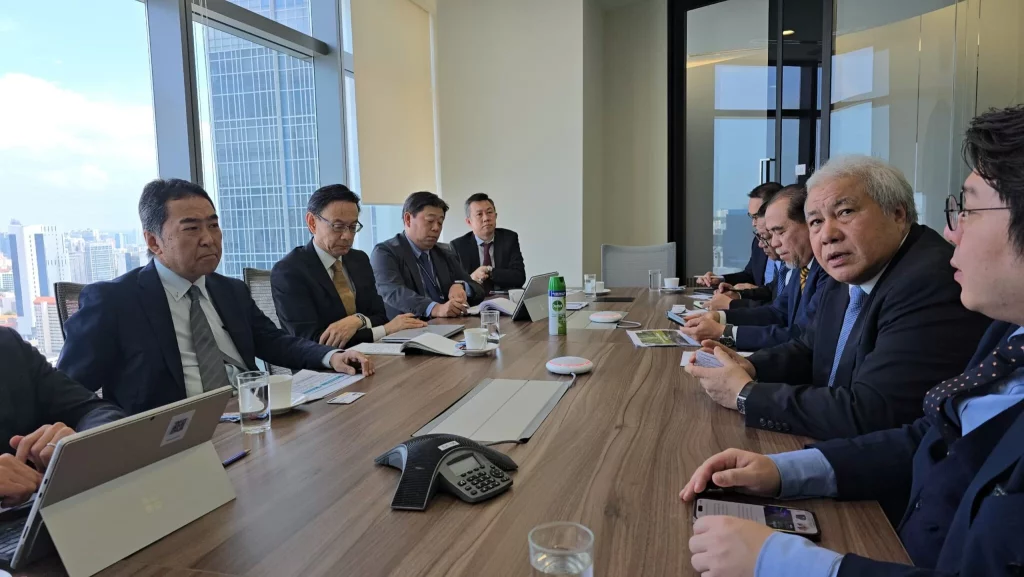
SINGAPORE: Sumitomo Corporation (Sumitomo) has expressed its interest to have greater involvement in Sarawak’s green projects. Among the projects are biomass bamboo, renewal energy, carbon capture, utilisation and storage (CCUS), green metals, chemical and derivates. Deputy Premier Datuk Amar Awang Tengah Ali Hasan welcomes Sumitomo to explore and invest in the bamboo plantation project. He also invited Sumitomo to look into the new economic sectors including the green and digital economy. Earlier today, Awang Tengah, who is also Minister of International Trade, Industry and Investment, met with Sumitomo Corporation Asia and Oceania Group chief executive officer (CEO) Keigo Shiomi to discuss more collaboration opportunities. Sumitomo has several collaborations in Sarawak and is currently developing a hydrogen related production project in Bintulu. Meanwhile, also in attendance during the meeting were Sarawak Timber Industry Development Corporation (STIDC) general manager Zainal Abidin Abdullah, STIDC advisor Datuk Hashim Bojet, InvestSarawak CEO Timothy Ong, and PUSAKA Capital Sdn Bhd CEO Mohamad Nor Topek Julaihi.
Sarawak welcomes Singaporean investors
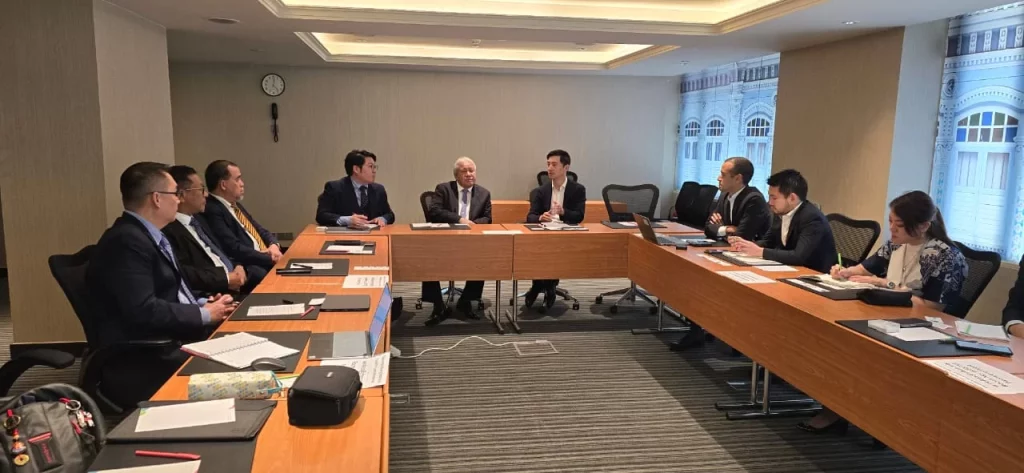
KUCHING: The Sarawak government has consulted with several Singaporean investors to explore investment opportunities especially in renewable energy, green energy and digital economy projects in the state. Deputy Premier, Datuk Amar Awang Tengah Ali Hasan who was in Singapore yesterday engaged with representatives from UOB Group, Eastspring Investments, TWO Family Office and Chemsains Konsultant Sdn Bhd. Awang Tengah welcomes the interest from these companies and expressed his appreciation towards their interests in Sarawak, in line with the Post Covid-19 Development Strategy 2030 (PCDS 2030) for the state to be a thriving society driven by data and innovation. During his visit there, he also met with Kuok Meng Wei who is representing Kuok Group, one of Singapore’s largest conglomerates to discuss potentials in green and renewable energy investment projects in Sarawak. For the record, Kuok is also the chief executive officer (CEO) and managing director of K2 Strategic, an international developer, owner and operator of hyper-scale digital infrastructure assets in the technology sector. Also in attendance were Sarawak Timber Industry Development Corporation (STIDC) general manager, Zainal Abidin Abdullah, STIDC’s advisor, Datuk Hashim Bojet, Invest Sarawak chief executive officer, Timothy Ong and PUSAKA Capital Sdn Bhd chief operating officer, Mohamad Nor Topek Julaihi.
The Netherlands announces subsidies for €998,330,000 for production of renewable hydrogen with a electrolysers
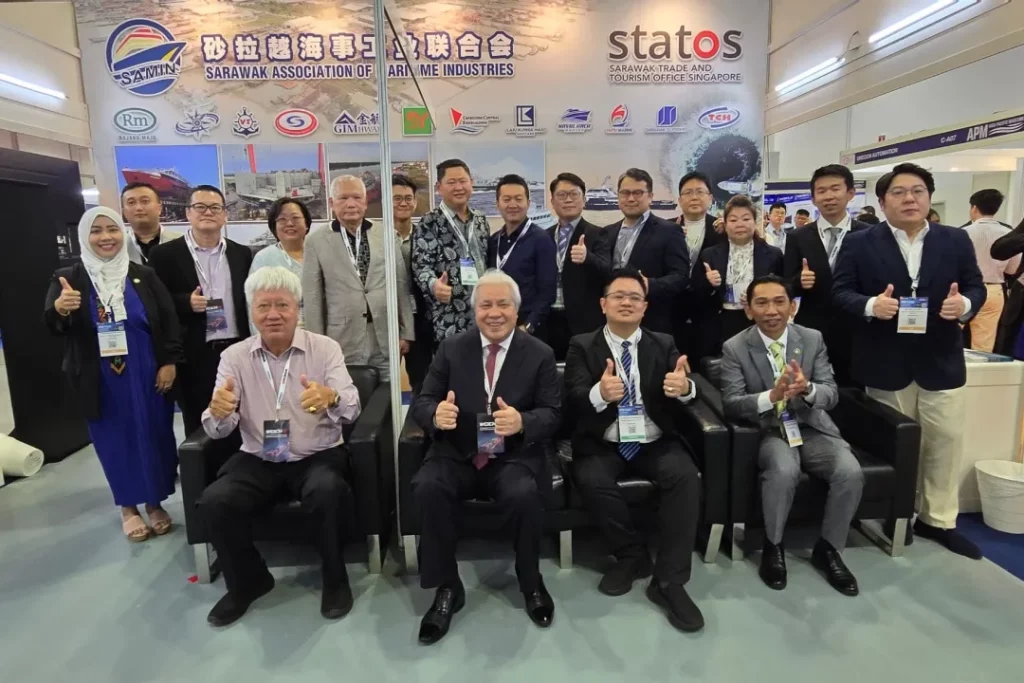
The Netherlands announces subsidies for €998,330,000 for production of renewable hydrogen with a electrolysers. Do you want to produce renewable hydrogen with an electrolyser? And do you have plans for this? Then you will soon be able to apply for a subsidy via the OWE scheme again. To help you prepare your application, we provide you with an overview of the changes compared to the OWE in 2023. What’s different in 2024? Requirements for the installation 🔥 What about we co-host a webinar? Let’s educate, captivate, and convert the hydrogen economy! Hydrogen Central is the global go-to online magazine for the hydrogen economy, we can help you host impactful webinars that become a global reference on your topic and are an evergreen source of leads. Click here to request more details Ranking of your application Your maximum subsidy amount Feasibility of your project New mandatory appendix: supply of renewable electricity purchase Realizing your installation
China’s emissions, efficiency targets under threat after falling short in 2023

Bloc commits to mobilize $10.8bn for ASEAN sustainable projects SINGAPORE, March 12 (Reuters) – China is falling short on key targets for tackling climate-warming emissions, and analysts said Beijing’s credibility in global climate talks could be at risk unless it redoubles its efforts to get back on track. The Chinese government has rarely missed targets in the past. But now, driven primarily by energy security concerns, it has shown little political will to address the emissions gap, analysts said. China’s National Development and Reform Commission (NDRC), a planning agency, promised last week to “redouble efforts in energy conservation and carbon reduction” this year after it “fell short of expectations” in 2023. Analysts say it is well behind on its goal to slash energy intensity by 13.5% and carbon intensity by 18% between 2021 and 2025. The intensity rates – measuring how much energy is consumed and how much carbon dioxide emitted per unit of economic growth – are a key part of the country’s pledge to bring emissions to a peak before 2030 and to net zero by 2060. Keeping its targets within reach would require “concerted efforts across all sectors to bridge the gap”, said Jom Madan, senior research analyst with the consultancy Wood Mackenzie. But the planning commission set targets for 2024 that fall far short of what is needed. For energy intensity, the commission mandated only a 2.5% reduction. It set no new target for carbon intensity, and made no new moves to curb the use of coal – the most polluting fossil fuel. Madan predicted that China might “come close … but not quite achieve its targets” on energy efficiency. If the country misses its 2025 targets, it could raise doubts worldwide about its ability to rein in emissions. The country also risks a “serious loss of diplomatic credibility,” said lead analyst Lauri Myllyvirta of the Centre for Research on Energy and Clean Air. “China has long emphasised its ability to implement the country’s commitments, while criticising others for setting lofty targets,” he said. The NDRC did not respond to a request for comment. As the world’s biggest carbon polluter and second-largest economy, China has faced growing international pressure to show more climate ambition. It has resisted, arguing that it is already doing more than most fast-developing countries. China’s rising emissions account for 35% of the world’s annual total. On a per capita basis, the emissions level is 15% higher per capita than the OECD average, the International Energy Agency said last week. To meet its goals, Beijing should focus on efficiency improvements in industry and construction, and offer more financial support for companies to replace or retrofit outdated facilities, Madan said. Expanding the carbon market would also help, he added. NEW REALITY Officially, China’s energy intensity fell 0.5% in 2023, the country’s statistics bureau said last month, missing a 2% target. The gap would have been worse, but China last month removed non-fossil fuels such as nuclear and renewable energy from the equation to focus on tackling fossil fuels. China is applying this definition retroactively, Myllyvirta said. Without the change, the energy intensity calculation would have shown an increase of 0.5%. Myllyvirta estimated that China would need to cut energy intensity by 6% in 2024 and 2025 to meet the 2021-2025 target – far higher than the 2.5% goal set this week. Energy intensity might matter less in the future, however, said Ma Jun, director of the Beijing-based Institute of Public and Environmental Affairs. The change in how it is calculated “reflects a new reality” for China, in which economic growth is increasingly driven by the renewables sector, and fossil-fuel dependent industries will come under more pressure to boost efficiency, Ma said. “That means carbon intensity is going to matter more,” he said. Although China set no new targets for carbon intensity, the country’s economic growth implies the measure will fall about 3% this year, analysts said. However, after dropping 4.6% from 2020 to 2023, carbon intensity would need to drop about 7% this year and next to reach the 2025 goal, Myllyvirta said. Missing climate targets is unusual for China, which has made job promotions contingent on environmental progress to encourage workers and agencies to meet goals. In 2022, China’s corruption watchdog warned that some regions were providing fraudulent energy and carbon intensity figures that were overly positive. Pressure to comply with intensity targets also caused economic disruptions in 2010, with provinces cutting power supplies to energy-intensive industries and forcing homes to ration electricity. Without a major boost to its climate efforts now, “meeting the five-year intensity targets by 2025 will be very challenging,” said Li Shuo, director of the China Climate Hub at the Asia Society Policy Institute in Washington. “This year’s government work report certainly did not signal that level of decisiveness,” Shou said.
Abang Rahmat Yusuf is CEO of Sarawak Sovereign Wealth Future Fund
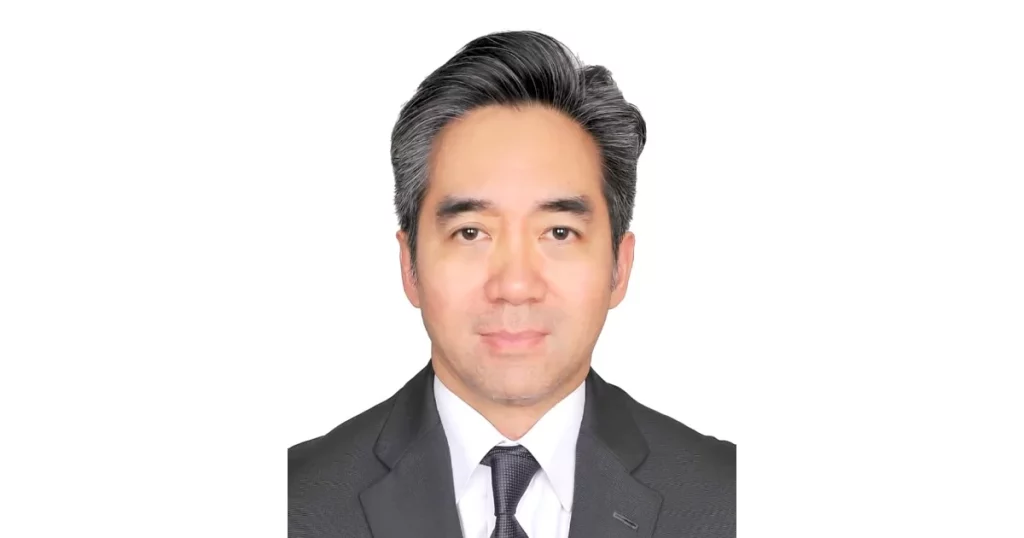
KUCHING: The Board of Guardians of the Sarawak Sovereign Wealth Future Fund has appointed Abang Rahmat Yusuf as the Chief Executive Officer (CEO), effective January 29 this year. The announcement was made after the Board meeting yesterday, according to a press statement. Abang Rahmat, 48, was formerly the head of Investment Banking (Malaysia) at CLSA Securities from 2019 to 2024. During his tenure there, he led the fund raising exercises including initial public offerings (IPOs) and placements for institutional and corporate clients. In the beginning of his corporate career, he was a director in the Investments arm at Khazanah Nasional in 2004 until 2019, during which he established and headed the Khazanah Turkey Regional Office in Istanbul covering Turkey, Middle East and North Africa (MENA) and Sub-Saharan Africa. He was also the Overseeing Director for Financial Institutions Group (FIG), which represented 20 per cent of Khazanah’s portfolio. He holds a Master in Public Administration from Harvard University.
Germany launches green subsidies for industry

Bloc commits to mobilize $10.8bn for ASEAN sustainable projects BERLIN, March 12 (Reuters) – Germany on Tuesday launched a bidding process for subsidies to support energy-intensive firms switching to green production in a 4 billion euros ($4.37 billion) funding round, the economy ministry said on Tuesday. As part of Germany’s ambitions to become climate-neutral by 2045, Berlin plans to award companies in sectors such as steel, glass, paper and chemicals 15-year subsidies in return for reducing carbon emissions in production. The European Commission has approved the instrument where companies will be selected through a bidding process while competing over cutting emissions at the lowest cost. Through the so-called climate protection contracts, companies will be compensated for the extra costs of green production in industries where climate-friendly production processes cannot currently operate competitively. “Today is a good day for Germany as an industrial location, for climate protection and for sustainable jobs in our country,” said Economy Minister Robert Habeck. Berlin had originally planned to offer subsidies up to a mid double-digit billion euro sum, but the programme was put at risk by last year’s constitutional court ruling stopping the government from using some 60 billion euros of debt for climate protection projects. ($1 = 0.9148 euros)
Bintulu’s Samalaju Industrial Park nets RM111.73b approved investment since 2008 launch, says Sarawak premier
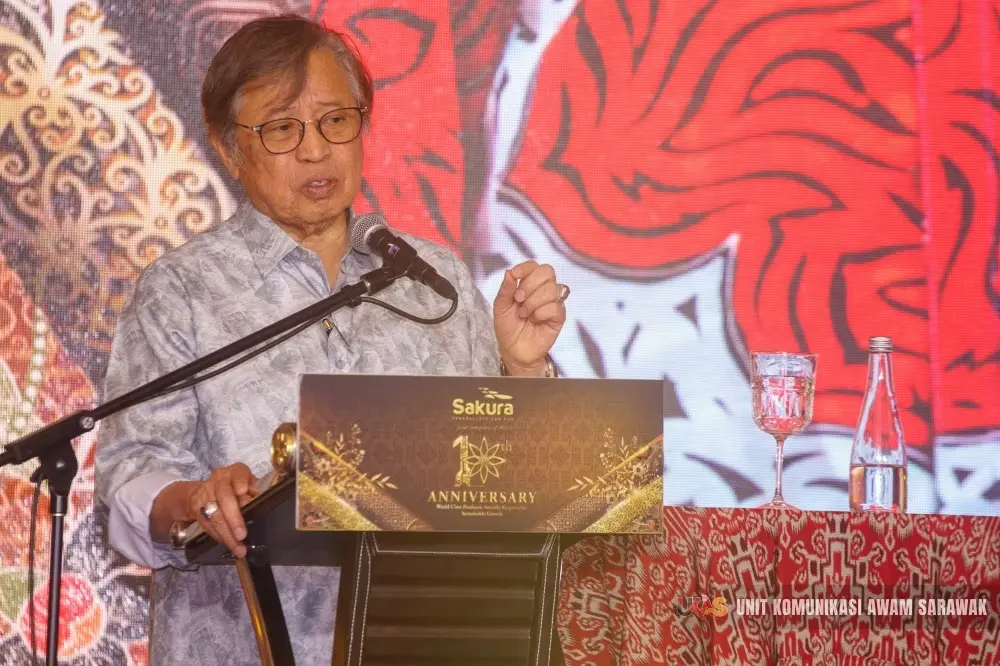
BINTULU, March 5 — Premier Tan Sri Abang Johari Openg said last night that Samalaju Industrial Park, which was launched by the then prime minister Tun Abdul Ahmad Badawi in 2008, has attracted an approved investment of RM111.73 billion to date. He said RM12.07 billion out of the total has gone towards commercial production, with direct employment for 9,293 workers. “The potential is there. We have a list of companies which are going to invest in the park, with an anticipated investment of RM15.66 billion,” he said during the 10th anniversary of Sakura Ferroalloys Sdn Bhd. He said there are also a few projects that are being enhanced, one of which is the 70km-long Bintulu-Samalaju gas pipeline that is scheduled for completion at the end of next year. “The operations of these projects will increase the distribution of gas supply to users in Samalaju Industrial Park including the combined cycle gas turbine which is currently under construction. “In other words, we are upgrading the gas supply as well as power to Samalaju Industrial Park,” he said. In his speech earlier, Sakura Ferroalloys Sdn Bhd chairman BH (Tiaan) van Aswegen said the company is in the process of constructing a new sinter plant at the site. “This US$30 million plant will be commissioned in the second half of 2024 and will contribute to further improve plant efficiencies and lower the cost base,” he said. He said a feasibility study to produce a value-added refined ferro-manganese product will be concluded by mid-year. “If the study results are positive, this might lead to a further investment of around US$100 million at Sakura,” he said, adding that studies to produce by-products from current waste streams, such as slag, fumes and gas, are being pursued.
EU official praises green energy push by Malaysia’s Sarawak

Bloc commits to mobilize $10.8bn for ASEAN sustainable projects Six major ports function as crucial transhipment hubs that play integral roles in the state’s supply chain by NURUL SUHAIDI KUCHING, Malaysia — Sarawak, a resource-rich state in Malaysia with an ambitioussustainable energy agenda, is drawing interest from the European Union, but the 27-nation group’s top official in the country says the bloc needs new cooperativemechanisms for its companies to take advantage of the opportunity. “We have seen the opportunities and the vision of the state, bringing in hydrogen,sustainable transition to green energy and energy transition,” Michalis Rokas, the EUambassador to Malaysia, said in a speech at the EU-Malaysia Business Day 2024 eventheld on Feb. 14 in Kuching, the capital of Sarawak, which is located on the island ofBorneo.Malaysia is the EU’s third largest trading partner in ASEAN, while the EU is the fourthlargest destination for Malaysian exports. The EU is also the second largest source offoreign direct investment for Malaysia at 25.2 billion euros in 2022. Still, Rokas acknowledged the limited presence of European businesses in Sarawak. Tobridge this gap, he proposed a “blending” model whereby European companies wouldtake the lead in strategic investments, while the EU would provide financial supportthrough grants, guarantees and concessional loans through the European InvestmentBank (EIB). This approach aims to de-risk projects and attract private capital,accelerating Sarawak’s green ambitions.Rokas also said the potential partnership aligns with the EU’s Indo-Pacific Strategy,which emphasizes fostering partnerships with regional countries on issues like climatechange and clean energy. Sarawak’s focus on developing hydrogen production,sustainable aviation fuel, and transitioning away from fossil fuels resonates with theEU’s own sustainability goals. The EIB has been active in Southeast Asia for over three decades, financing projects invarious sectors such as energy, transport, climate action and infrastructure. In 2022, itopened a regional representative office in Jakarta to further strengthen its engagementin Indonesia, Vietnam, Cambodia, Laos and the Philippines. Nikkei Asia understandsthat the bank has been attempting to operate in Malaysia since 2020. Its application ispending government approval for a framework agreement.Rokas also said during his speech that the EU and its 15 member states with a presencein Malaysia will be working on a plan to propose a Global Gateway flagship project inSarawak.Meanwhile, the state’s deputy premier Awang Tengah Ali Hassan welcomed thepotential partnership, highlighting the existing trade relationship between Sarawak andthe EU, which stood at 2.1 billion euros in 2022. He emphasized the state’s commitmentto renewable energy, with a target of generating at least 60% of its power from cleansources by 2030. Sarawak, abundant in oil, gas and timber, is the only Malaysian state with more than70% renewables in its energy mix, mainly from hydroelectric dams. It has threeoperational large-scale hydroelectric dams, with a fourth, Baleh, under construction.The total installed capacity of the operational large-scale hydroelectric dams in Sarawakis 3,452 megawatts. Once Baleh is completed, the total capacity will increase to 4,737MW.Last year, Sarawak announced plans to sell one gigawatt of renewable energy toSingapore via a 700km undersea cable by 2032.“We seek to establish a stronger connection between Sarawak and Europe,” Awang saidat the business event. “I hope this will serve as a venue to forming new networks andposing new paths which yield fruitful outcomes towards an inclusive economy.” Headded that Sarawak’s green push has led to collaborations with global players fromSouth Korea and Japan to develop the hydrogen industry in the state.Sarawak is already embarking on two major hydrogen production projects — withJapan’s Eneos and Sumitomo Corp. on one called H2ornbill, and South Korea’sSamsung Engineering, Posco and Lotte Chemical on another dubbed H2biscus — in theport town of Bintulu, where one of the world’s largest LNG complexes is located.The Sarawak state legislative assembly building and Sarawak River in Kuching, Malaysia. (Photo by Norman Goh)4/2/24, 2:01 PM EU official praises green energy push by Malaysia’s Sarawak – Nikkei Asiahttps://asia.nikkei.com/Business/Energy/EU-official-praises-green-energy-push-by-Malaysia-s-Sarawak 5/5Get our Asia daily briefing newslettersnewsletter@nikkeiasia.com RegisterThe two projects will have the potential to produce up to 238,000 tonnes of greenhydrogen annually, generating an estimated 2.4 billion ringgit to Sarawak’s grossdomestic product by 2030, according to Abang Johari, the state’s premier during hisannual new year address in January.Sarawak also boasts, according to the premier, ASEAN’s first integrated hydrogenproduction plant and refueling station, powering hydrogen buses in Kuching since 2018and a tram on a test basis beginning last year.Also, a third hyrdogen project is based in Rembus, near Kuching, for domestic use andis expected to be fully operational in 2025, according to state-linked company SEDCEnergy and the Sarawak Economic Planning Unit. On Monday, SEDC Energy signed anagreement with Gentari, a subsidiary Malaysia’s state energy conglomerate Petronas todevelop the Sarawak H2 Hub in Bintulu, according to a statement by Gentari.Total hydrogen industry investment in Sarawak is estimated to be worth at $4.2 billion,an SEDC Energy spokesperson told Nikkei Asia.Hydrogen produced in Sarawak is known as green hydrogen — produced via electrolysisand powered by renewable electricity from hydroelectric dams. Additionally, the state ispioneering the production of crude algae oil for sustainable aviation fuel usingmicroalgae.Timothy Ong, the chief executive of the newly established state investment promotionagency InvestSarawak said at a panel session that Sarawak is not only in competitionwith other regions of Malaysia, but with countries like Vietnam, Indonesia, Thailandand Singapore as well.“Although a lot of people come to Sarawak for renewable energy, I can comfortably tellyou today that we have more demand than available supply when it comes to renewableenergy,” Ong said. He added it is important for the state to understand that investmentbenefits must trickle down to the people of Sarawak and companies and not just remainin the hands of foreign or domestic investors.
23 European Union Delegates Arrived Safely in Sarawak
Abang Johari (2nd right) at the launch of InvestSarawak while (from left) Ong, Awang Tengah and Julaihi look on. Photo: Mohd Alif Noni KUCHING: The establishment of InvestSarawak is a pivotal initiative by the Sarawak government to facilitate the ease of doing business in the state. Deputy Premier Datuk Amar Awang Tengah Ali Hasan said InvestSarawak is a one-stop centre (OSC) that aims to transform the investment landscape, increase trade and talent attraction for Sarawak. “InvestSarawak will play a key role serving as facilitator and adviser to provide invaluable local insights to all investors, both foreign and domestic. “They are also under the purview of my ministry, which is the Ministry of International Trade, Industry and Investment (MINTRED),” he said in his speech during the launching of InvestSarawak and EU Business Day 2024 networking dinner here last night (Feb 14). Invest Sarawak is the state’s investment and trade agency that will play the role of the first point of contact for all investors. In addition, it will act as the key facilitator to all investors across sectors in the development, applications and approvals for investment projects in Sarawak. Touching on the programme, Awang Tengah described it as a good effort to gather local and global thought leaders under one roof, adding that the forum held attracted over 300 participants from more than 100 companies from the European Union (EU). “Sarawak’s unique offerings and Europe’s diverse markets offer huge potentials for mutually beneficial partnerships both in investment and trade. “For the past decade, there were 19 EU investments in Sarawak, specifically from the Netherlands, Belgium and Germany, totalling RM10.66 billion in sectors such as electric and electronic (E&E), basic metal and petroleum products,” he said. Present at the launch were Premier Datuk Patinggi Tan Sri Abang Johari Tun Openg, Deputy Premier Datuk Amar Dr Sim Kui Hian, Ambassador of the EU to Malaysia Michalis Rokas, Minister of Women, Early Childhood, Community Wellbeing Development Datuk Seri Fatimah Abdullah, Utility and Telecommunication Minister Datuk Seri Julaihi Narawi, State Secretary Datuk Amar Abu Bakar Marzuki and InvestSarawak chief executive officer Timothy Ong.
Sarawak To Allign With EU On Energy Production
Sarawak Premier Tan Sri Abang Johari Openg recently announced their cooperation with the European Union (EU) in the energy production sector to reduce the effects of climate change. The cooperation was revealed during his speech at the dinner event held in conjunction with the launch of Invest Sarawak and Business Day, that has been attended by over 400 guests, including state Cabinet ministers, business representatives and 23 delegates from the EU. Abang Johari said the cooperation will involve technological development, especially in hydrogen production. “In line with technology advancement that will reduce dependence on fossil energy, which is constantly increasing in cost, I believe that the cost for hydrogen production will become cheaper within the next five to 10 years,” he said. He said Sarawak is taking the issue of global warming seriously, adding that the state wants to help reduce carbon emissions and the impact of climate change, which resulted in the highest temperature reading last year.

